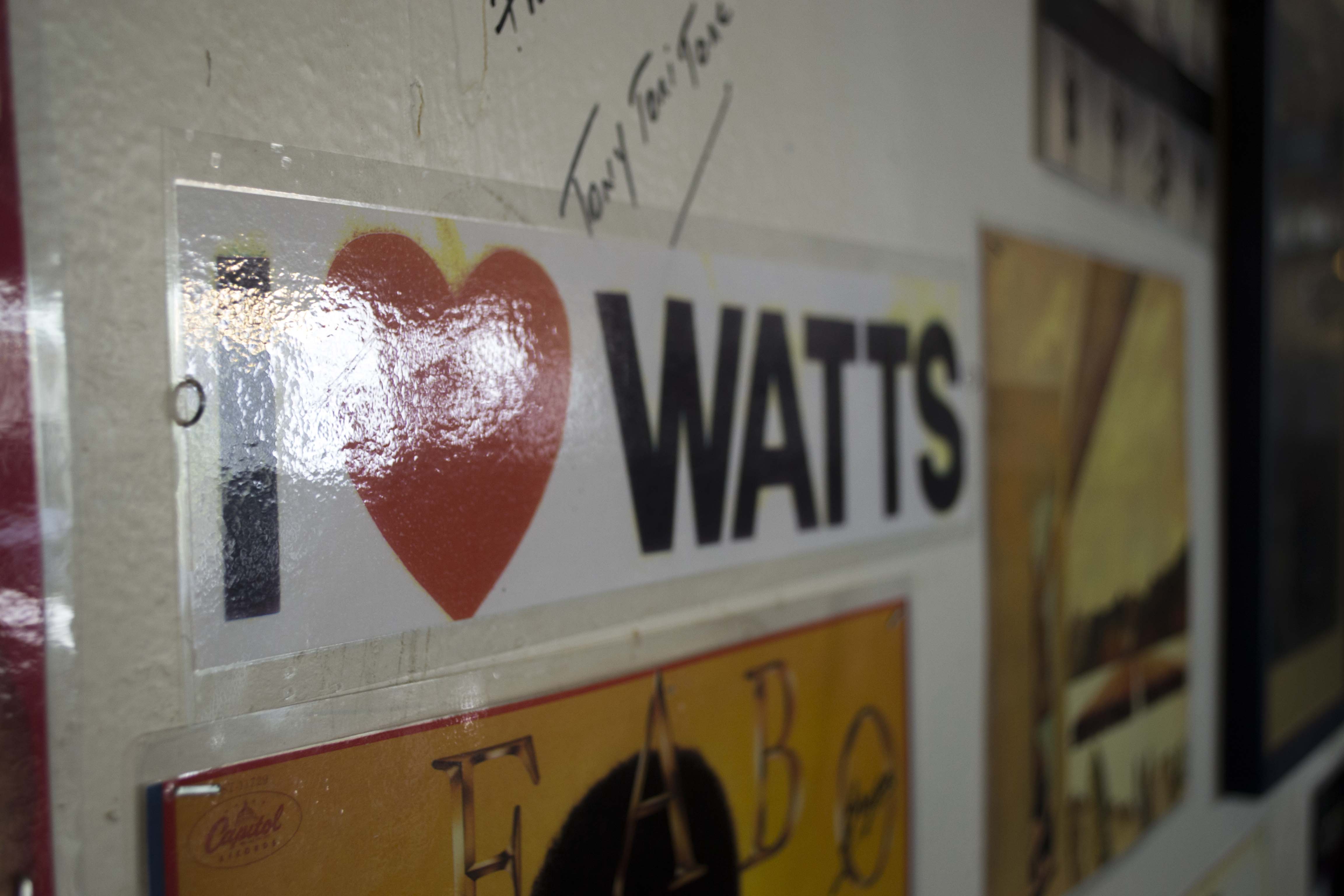The way Watts locals remember it, the Watts Happening Coffee House was the place to be in the late ‘60s.
“It was hip,” said Harold Hambrick, a longtime Watts resident and witness to the 1965 Watts Riots. “Anyone who had any kind of creative ideas could come there.” Musicians, poets, and artists gathered at the space in the years following the Watts Riots, as did political activists, Hollywood actors and members of L.A.’s Black Panther Party.
In the nearly 50 years since the Watts Riots — or Watts Rebellion, as residents prefer to remember it — the coffee house sat dormant for decades, then reopened. It has hosted some performances in recent years, but not to the scale it once did.
Now, some community members hope to bring the arts scene back to the iconic cafe. With a grant from the California Arts Council, the Watts Village Theater Company has set out to refurbish the space, now called just the Watts Coffee House. For the first time ever, the company will stage a full length play called Follow in the cafe, starting tonight.
The Watts Happening Coffee House rose, literally, out of the ashes of the 1965 violence in Watts which left 34 dead and more than 3,000 arrested. 103rd Street became known as “Charcoal Alley.” Nearly everything on the street had burned.
“It was brought out of chaos,” said Rita Cofield, project manager of the Watts Village Theater Company’s beautification project. “It was an incubator for all of these creative things in the community.”
The Watts Rebellion was a six-day struggle in response to the arrest of a 21-year-old black man by a white CHP officer, the largest civil unrest in L.A. history at its time. In the years afterwards, artists and activists transformed the Watts Happening Coffee House into base camp for civil rights efforts. Donations flowed into Watts from government agencies like the Department of Housing and Urban Development and Hollywood names like Budd Schulberg and Roger Mosley, giving rise to organizations like the Watts Writers Workshop, Studio Watts and the Mafundi Institute — all promising creative expression for survivors of the Rebellion.
But within a decade, donations slowed, public memory of the Watts Rebellion waned, and the coffee house and many of the organizations formed there closed.
Read the rest of this story at LA Weekly
